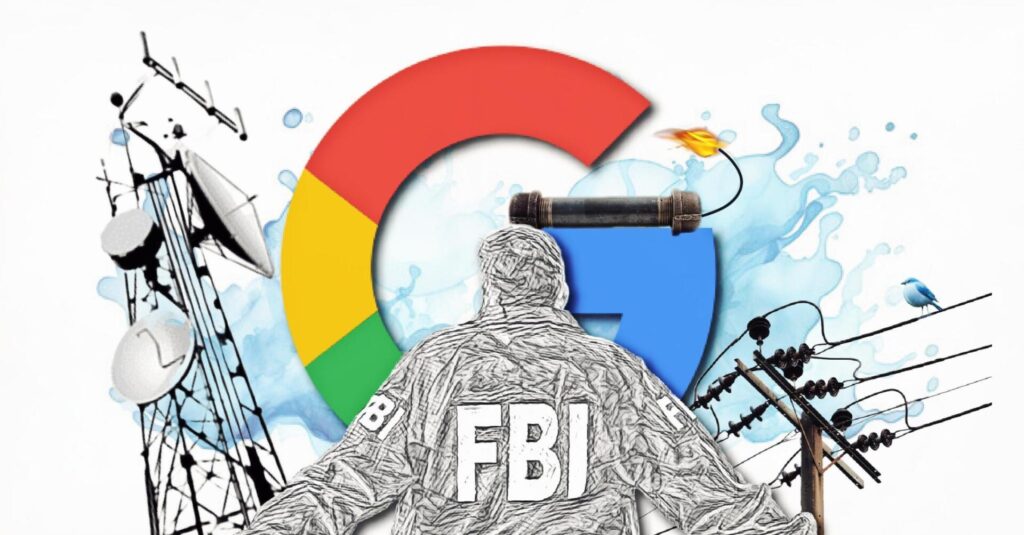We’re approaching the four-year anniversary of the infamous January 6 pipe bomb case, and still the FBI pretends to be clueless as to the identity of the suspect. In this same span of time, Revolver News is proud to have broken countless stories regarding the pipe bomb case that overwhelmingly point toward a government cover-up involving the FBI, ATF, the Secret Service, Capitol Police, and even Kamala Harris herself. The evidence is so damning that we have long referred to the January 6 pipe bombs as one of the two smoking guns of the Fedsurrection (the other smoking gun being Ray Epps). Our reporting has completely reshaped the national conversation not only about the pipe bomb but January 6 generally, and the reverberations continue to make their way to the top. Just recently, no less than Elon Musk (a confirmed reader of Revolver) expressed his view that the pipe bomb story is a hoax and that the identity of the bomber could very well be a secret government employee.
Live in PA: @elonmusk on the Jan 6 pipe bomber: Maybe he was a federal employee.
👀 Exclusive front row footage by @KevinPosobiec pic.twitter.com/CE55LF9X1Q
— Human Events (@HumanEvents) October 19, 2024
In a recent interview, Dan Bongino (who has been great on this issue) raised the question of the pipe bomb to Trump himself, who maintained that if elected he would help get to the bottom of it.
Trump on Dan Bongino💥
Call me a conspiracy theories Harris as deviant as I think she is, known about the pipe bombs placed out side her "office" pic.twitter.com/9MxC7s9kIt— katwithclaws (@NewChristi28910) October 19, 2024
One way to find out the pipe bomber’s identity is through the use of so-called geo-fencing technology. In a nutshell, law enforcement can identify suspects based on various types of location signals given off by their phones (for instance, where and when a particular mobile device pings a cell tower). Law enforcement has successfully used this geo-fencing approach to identify, arrest, and charge a number of January 6 participants already.
Electronic Privacy Information Center (EPIC):
According to journalist Marcy Wheeler, the FBI relied heavily on controversial geofence warrants as part of its investigations into January 6 suspects, identifying over 5,000 unique devices based on Google Location History. Geofence search warrants are meant to locate devices within a given area based on digital services like GPS, Bluetooth, or Wi-Fi signals. According to a follow-up report by Wired, the filings suggest that these geofence warrants also captured phones that were in airplane mode or otherwise out of cell service. Further, it appears that individuals who attempted to delete their location data in the days after January 6 were of particular interest to the FBI.
In fact, the pipe bomb suspect would be a particularly easy geo-fencing target because the suspect was alone in a specific, known area at a specific, known time. See, for instance, the surveillance footage released by the FBI: […]
— Read More: revolver.news
What Would You Do If Pharmacies Couldn’t Provide You With Crucial Medications or Antibiotics?
The medication supply chain from China and India is more fragile than ever since Covid. The US is not equipped to handle our pharmaceutical needs. We’ve already seen shortages with antibiotics and other medications in recent months and pharmaceutical challenges are becoming more frequent today.
Our partners at Jase Medical offer a simple solution for Americans to be prepared in case things go south. Their “Jase Case” gives Americans emergency antibiotics they can store away while their “Jase Daily” offers a wide array of prescription drugs to treat the ailments most common to Americans.
They do this through a process that embraces medical freedom. Their secure online form allows board-certified physicians to prescribe the needed drugs. They are then delivered directly to the customer from their pharmacy network. The physicians are available to answer treatment related questions.

